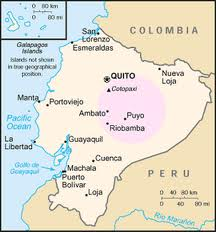Keeping Your Adversary’s Environmental Expert Honest
By admin on April 16, 2013
Law 360 reported on April 12, 2013 that Steven Donziger, counsel for the indigenous Ecuadorians known as the Lago Agrio plaintiffs, “meddled” in the preparation of a key environmental report used against Chevron as part of an effort to secure, by hook or by crook, the $19.2 billion judgment.
The environmental consultants at Stratus Consulting Inc. (“Stratus”) who prepared the report, Law 360 reported, found no credible scientific evidence linking Chevron’s operations in Ecuador to groundwater contamination, adverse health effects or an increase in the incidence of cancer. In fact, Stratus claims it was pressured by Donziger into making false public statements and concealing its role in drafting a purportedly “independent damages assessment.” The lead Stratus consultant stated, “I based my opinions and conclusions on a series of assumptions and data provided to me by Donziger and the [Ecuadorian plaintiffs’] representatives that I do not know to be true.”
In a press release, dated April 11, 2013, Stratus announced that Chevron had dismissed with prejudice the fraud and racketeering claims asserted against Stratus in the SDNY. According to the press release, Stratus’ environmental consulting work for Donziger was used in a report submitted to the Ecuadorian court by the supposedly “independent” court expert, Richard Cabrera, as part of a  process that Stratus learned was “fatally tainted” by Donziger and the plaintiffs’ representatives “behind the scenes activities.”
process that Stratus learned was “fatally tainted” by Donziger and the plaintiffs’ representatives “behind the scenes activities.”
Most toxic tort cases do not have stakes anywhere near as high as Chevron’s Ecuador case. There is the danger in any high stakes litigation that an environmental consultant is pressured into offering baseless conclusions under pressure from plaintiffs’ counsel or, alternatively, that the consultant’s data is used improperly.
There are steps that the diligent defense lawyer can take to reduce the likelihood of falling victim to expert witness fraud or abuse.
1. Obtain all the data. Well before the deposition of the plaintiffs’ expert, every piece of scientific data available should be obtained and reviewed. It may not be enough to rely upon reports submitted by the consultant to plaintiffs’ counsel or a regulatory agency. Often, the reports do not contain all the available information.
Where site investigation work is involved, it is good practice to obtain the consultant’s field notes so that defense counsel can investigate what on-site activities were performed on each day and by whom. If an issue in the case involves groundwater contamination, defense counsel should obtain the location, depth and construction details of each monitoring well, if detailed boring logs are not part of the report. The boring logs can provide important information concerning the observations of the staffers involved in the drilling, such as odors detected during drilling and soil composition.
2. Does the data permit the consultant to draw the conclusions made in his report? If there is a claim that groundwater contamination caused off-site impacts, for example, what assumptions were made in reaching this conclusion. Were on-site or off-site perimeter wells drilled? What does the data suggest about the presence of a groundwater plume? Was sufficient groundwater data obtained to permit reliable mapping of a plume? What assumptions does the consultant make concerning the size of the plume or the speed at which it is moving? Are these assumptions based on scientific evidence or guesswork?
Defense counsel should always be on the lookout for data that does not support the consultant’s conclusions. Does the consultant draw selectively upon certain pieces of data to support his thesis but ignore other data?
Often, an environmental consultant and a toxicologist are both retained to advance plaintiffs’ theory of the case. Does the plaintiffs’ toxicology expert misapply the information generated by the environmental consultant? If the toxicologist alleges that plaintiffs were injured due to an inhalatory exposure, for example, evidence of elevated groundwater levels is not relevant in the absence of evidence that contaminants in groundwater reached the ambient air where they could be inhaled.
Similarly, evidence of groundwater contamination in a monitoring well may not be indicative of the quality of the water at plaintiffs’ tap. There may be data gaps that plaintiffs’ toxicologist will attempt to fill with mere speculation. Defense counsel must be prepared to exploit those gaps and reveal the fallacies in the expert’s presentation.
